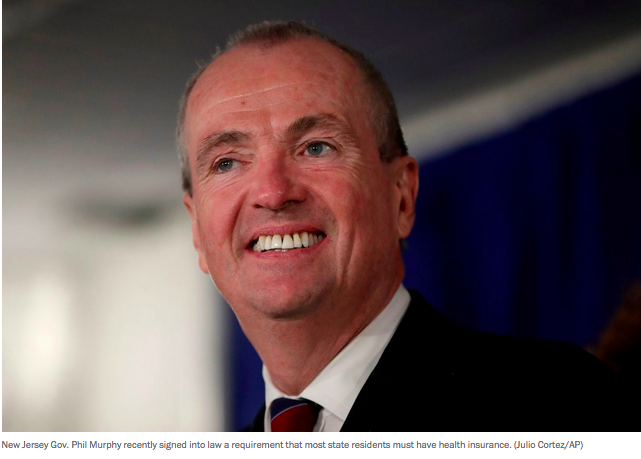The first Sunday after his inauguration, New Jersey Gov. Phil Murphy signed an executive order directing state agencies to report everything they could do to ramp up the visibility of the Affordable Care Act and persuade more people to buy health coverage under the law.
Four months later, the Democratic governor signed into law a requirement that makes New Jersey the first state in a dozen years to compel most residents to carry insurance.
As bureaucrats in Trenton scramble to set the mandate in motion, New Jersey’s decisions are at the forefront of a nascent movement with states stepping out on their own to counteract Washington’s efforts to erode the ACA.
New Jersey’s insurance provision and a similar one that the D.C. Council adopted last week are timed to begin in January, when a federal penalty is scheduled to disappear for Americans who violate the mandate built into the health-care law. A requirement that Vermont just approved is supposed to take effect in 2020, once officials settle on its specifics.
Several states are erecting barriers against rules the Trump administration is writing to promote short-term health plans that are comparatively inexpensive because they lack benefits and consumer protections guaranteed by the ACA. And some states, led by Democrats and Republicans alike, are trying to slow insurance rate increases through methods that Congress considered but did not pass.
“There are all these federal changes that are happening, and some states are pushing back on them and some states are taking advantage of them,” said Jason Levitis, a consultant who led the development of the ACA’s tax components at the Treasury Department during the Obama administration. “The most important and interesting health policy action is in states.”
Taken together, the moves mean the nation is starting to revert to the insurance landscape of a decade ago — a hodgepodge that created the political pressures that culminated in the sweeping 2010 law. At the time, Americans’ ability to find and afford decent health plans, especially if they could not get one through a job, depended on where they lived and whether they were healthy or sick.




